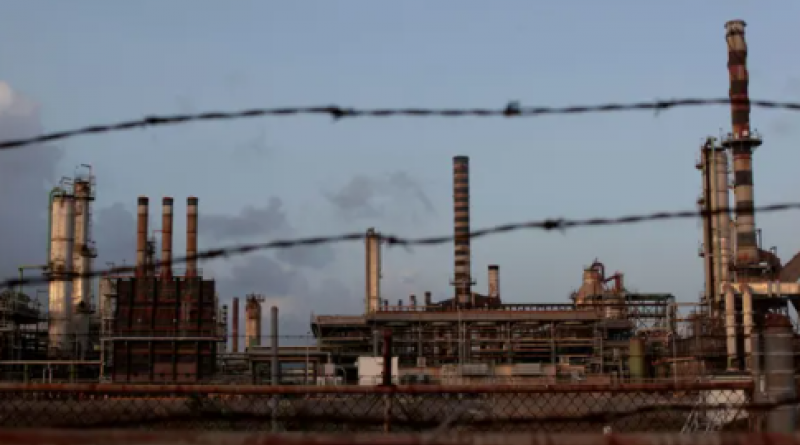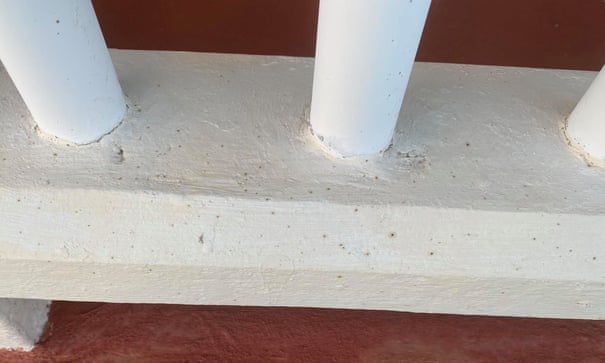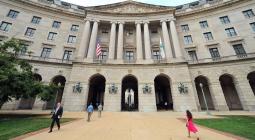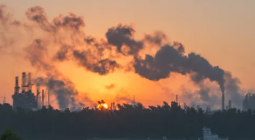EPA shuts polluting Caribbean refinery reopened under Trump.

Nearby residents in the US Virgin Islands, have endured water contamination and noxious fumes that closed three schools.
The Environmental Protection Agency has ordered an oil refinery in the US Virgin Islands to pause all operations, citing “at least four incidents” in which the facility significantly affected St Croix residents. The Limetree Bay refinery, which caused a massive oil spill in the 1980s, first reopened in February under an order from the Trump administration, after eight years idle.
“These repeated incidents at the refinery have been and remain totally unacceptable,” said the EPA head, Michael Reagan, noting that residents in St Croix are “already overburdened” by pollution and other environmental harms.
When the refinery reopened, it promised to be well maintained, according to Jennifer Valiulis of the St Croix Environmental Association.
“That obviously [was] not happening,” Valiulis said. In the first week of May, island residents endured the latest round of noxious fumes emanating from the plant, prompting several establishments, including three schools to shut down. The national guard then found elevated levels of sulfur dioxide – a harmful, toxic gas – near the refinery. Reuters reports Limetree Bay’s own testing found zero concentrations of the pollutant.
Earlier this week, on Wednesday, the refinery’s owners announced they were temporarily halting operations after a rapid series of accidents exposed neighboring communities to pollution.
But on Friday, the EPA, which said the company’s failure to properly operate pollution controls violated the Clean Air Act, told Limetree Bay to stay shut for 60 days “due to multiple improperly conducted operations that present an imminent risk to public health”.
In a statement emailed to the Guardian, Limetree Bay confirmed it received a public order from the EPA and reiterated that the company had voluntarily shut down production before that. “Our current focus is on investigating and cleaning up areas of the community affected by the incident,” said its CEO, Jeff Rinker, “and cooperating with the EPA in preparing the refinery for a safe and environmentally-compliant restart.”
“This is a really serious environmental justice problem, and the EPA has to do a lot better,” said Judith Enck, before Friday’s emergency order. Enck oversaw the refinery as a regional administrator in the Obama-era EPA and is founder of the advocacy group Beyond Plastics.
As is common with industrial facilities in the US, the majority of people living near the Limetree Bay refinery are Black or Latino, and many are poor.
“To have so many incidences within the early operations of the refining is unnerving,” said Frandelle Gerard, a St Croix business leader and the head of the Crucian Heritage and Nature Tourism Foundation.
From early only, the oil refinery in St Croix had problems. The facility was built by the Hess Oil Virgin Islands Corp in 1966, and by the 1970s, had expanded to become the largest in the world, churning out up to 650,000 barrels of oil a day.
The EPA learned the refinery was leaking oil into St Croix’s sole aquifer in 1982 – but it wasn’t until decades later that residents were given a full accounting of the damage. In 2011, the agency released a report stating that it had recovered more than 43m gallons of spilled oil from the island’s groundwater over that 30-year period.
The facility also has a history of polluting the air. The former owner, Hovensa, reached a settlement with the EPA in 2011 over alleged Clean Air Act violations. As part of the settlement, the company agreed to pay a $5.4m fine, and spend hundreds of millions on pollution controls. But the plant filed for bankruptcy and shut down in 2012 before making those upgrades.
The oil refinery’s closure deeply affected St Croix’s economy, according to Valiulis. “There were a lot of people who lost their jobs and a lot of people who left the island. We haven’t really had a chance to recover from that.” The devastation wrought by Hurricanes Maria and Irma in 2017 only compounded the problem.

The Trump administration played a large role in getting the plant back on its feet under new ownership. Near the end of Trump’s presidency, his administration helped fast-track approval to reopen the facility under new ownership – Limetree Bay Ventures. (Limetree Bay Ventures’ principal investor is ArcLight Capital Partners, which has ties to former president Donald Trump.)
The plant reopened earlier this year, on 4 February 2021 – and three days later, a malfunctioning valve sent a cloud of oil into the sky over the island, drifting as far as three miles away. According to Enck, although the refinery’s new owners invested a significant amount of money into reopening the facility, the refinery hadn’t been physically updated. “This is basically a 50-year-old refinery that is having really serious operational problems,” Enck said.
“The executive management of Limetree Bay sincerely apologizes for the impact to the public,” the company said in a press release, adding that the company would continue to monitor impact to the nearby community.
The EPA’s emergency order is the latest in a series of developments that have cast doubt on the refinery’s future – a welcome move for locals that don’t want the island to become a pollution haven for a dying industry.
This week, after the plant had temporarily halted operations, environmental groups and island residents held a virtual town hall – to which Limetree was invited – to discuss the impacts of the plant’s operation and address its lack of transparency.
“People are being harmed. Our children are suffering,” St Croix native ChenziRa Davis-Kahina said during the town hall, reports the Washington Post. “Why are they being allowed to operate without monitors? Why are our officials meeting, instead of shutting them down?”
“For the majority of the island’s long-term residents and natives, the time has come and gone for a refinery like this,” Gerard said. Really, she added, they want clean air, clean water, a healthy ecosystem and to build towards a more sustainable future. “The two just don’t go together.”
May 2021
The Guardian




